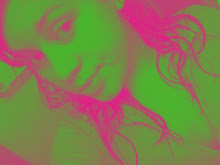Persepolis.... Hmmm I have finished both parts and am already forgetting things so I better do these blogs quick-like. I really liked this book and it actually taught me a lot of things about Iran that I didn't know. I love true life stories and this book kept me thoroughly entertained.
PROMPTS:
Memoirs....
I think it is great that Satrapi did not fictionalize this story, because I feel it makes people think, "Holy shit, this really happened?" I know that is what I thought. Non-fiction automatically has more power, because you can't really change the story in your mind. With a fiction book you can always make yourself feel better by thinking O yeah its just a story. Persepolis isn't JUST a story. This stuff really happened. Not many people know several family members and friends that have been tortured to death and since we know this really happened it is kind of a shock. I have read many diary books about people's lives (mostly girls) and they are all very detailed and real. Memoirs don't worry about happy endings. They are just about the truth and I think the truth is what we really need. I have already stated the good sides of memoirs and when it comes to the drawbacks I'm not sure. Maybe the fact that their life is out for every one to know might be one or people disagreeing with what they did in their life.
Organization and Structure...
Persepolis is organized into sections of Marji's life and goes off on other little stories that fill in what is happening. The story is very much centralized on her family, country and learning. Her family helps her develop into a very politically smart child and even praise her rebelliousness. She is very much worried about her country and at first turns to her faith to help herself understand. Many times it is said that she reads up on history and news about what is going on. It is also nice that you actually see this through a child's eyes. You see the death, the sadness and the tragedy through Marji's eyes and it takes a whole other affect on you. It is bad enough when your older and see this stuff, but Marji is only 7 or 8. I really like how her parents didn't try to hide it either. It made her a smarter girl and she knows that whats happening is wrong and fights it. The drawings of the story could tell the story by themselves. Her pictures show the rebellion, tragedy and sorrow, but in a way that a child would see it. The drawings greatly help to imagine what is was like during this time. They are powerful and make the story even more real feeling.
The Writer's voice...
Right now I am thinking more about the teenage Marji because I am so used to how she speaks and thinks, but I will try to think back to little Marji. I very much liked how she spoke. She spoke intelligently, but also with a certain curiosity. When she was with her family she was very honest and seemed more open, but when she was with friends she like to exaggerate and tell tales. As a child she is struggling with her identity and which route she wants to take in life. Throughout her life she changes a lot and decides to rebel against the regime. I think the part of her I identify with is her need of close family and her sticking to her beliefs no matter what. The part about her I really don't like though is how she sold out that innocent man to save herself (when she was older). I would never purposely get some innocent person in trouble (especially when the trouble means torture and maybe death) just to prevent myself from the same thing. With any book I usually get attached and want to know more, more and more and the way young Marji acted so strong and determined really made me want to read what else was in store for her. She made me mad some times and laugh at others. Overall I really loved the story and I, of course, wish there was even more to it.
Thursday, May 21, 2009
Subscribe to:
Post Comments (Atom)

No comments:
Post a Comment